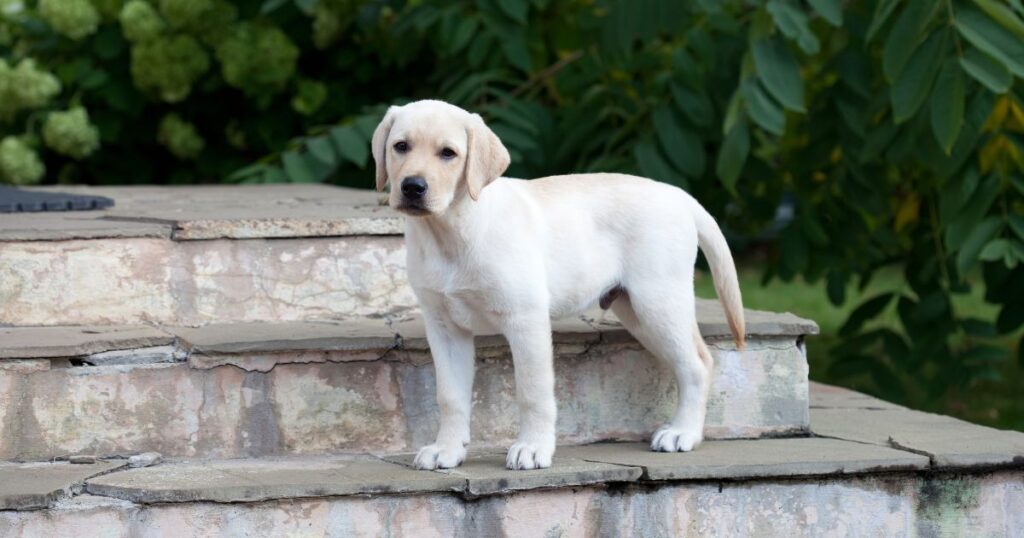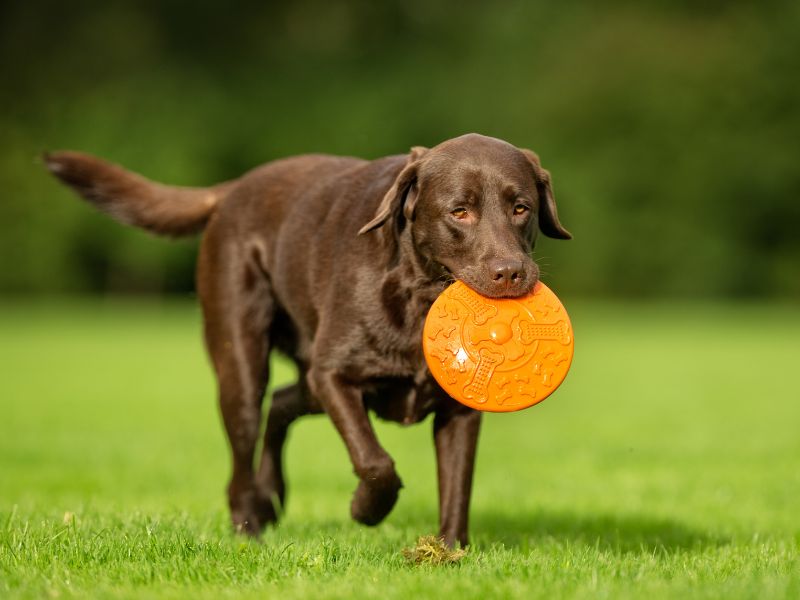
A smaller version of the popular Labrador breed, miniature Labradors have been gaining attention from dog lovers looking for a more compact canine companion. These petite pups are bred to offer all the lovable traits of a Labrador in a smaller package, making them a great choice for families with limited space or energy. Mini Labradors are the product of two purebred Labrador parents carrying the dwarfism gene, resulting in dogs with shorter legs. Despite their smaller size, these mini Labs still possess the same friendly, intelligent, and loyal nature that has made Labradors a favorite among families worldwide. Potential owners interested in welcoming a miniature Labrador into their homes should be aware of the breed’s specific needs and potential health issues. Doing thorough research and considering these factors is crucial before making the decision to bring a mini Lab into your family. With proper care and attention, these pint-sized companions can bring joy and companionship to any household.

A dwarf Labrador, also known as a “Mini Lab,” is a pint-sized version of the popular Labrador Retriever breed, cherished for their affectionate and friendly nature. These adorable pups inherit their petite stature from a genetic condition known as dwarfism, which gives them all the wonderful traits of a typical Labrador in a smaller package. Standing at around 20 to 22 inches tall and weighing between 30 to 50 pounds, dwarf Labradors may be smaller than their standard counterparts, but they are equally as loving and loyal. While some Mini Labs are born with dwarfism, others are just naturally smaller in size, making them perfect for those seeking a more compact canine companion. Despite their smaller size, dwarf Labradors require the same level of exercise and mental stimulation as their larger counterparts. Regular walks, playtime, and training are essential to keep these active and intelligent dogs happy and healthy. Mini Labs are available in both male and female variations, offering a delightful option for any Labrador lover looking for a smaller furry friend. In conclusion, the dwarf Labrador, or Mini Lab, is a delightful choice for those who adore the Labrador Retriever breed but prefer a smaller dog. Bringing a Mini Lab into your home will provide just as much love and companionship as a standard-sized Lab, with the added convenience of a more compact canine companion. With proper care and attention to their needs, a dwarf Labrador can make a wonderful addition to any loving family.

Symptoms of Dwarf Labradors are typically characterized by their shorter leg length compared to regular Labrador Retrievers. This genetic condition, known as dwarfism, is inherited when both purebred Labrador parents carry the recessive dwarfism gene. As a result, these miniature Labs may have legs that are around two to three inches shorter than the standard Labrador. Despite their shorter stature, dwarf Labradors often exhibit the same friendly and energetic temperament that is typical of the Labrador breed. However, it is crucial for potential owners to be aware that these dogs may also face additional health issues due to their genetic mutation. While dwarf Labradors are not intentionally bred to be smaller, their unique appearance and characteristics make them an intriguing variation of the beloved Labrador breed. Prospective owners should carefully consider the specific needs and potential health concerns of dwarf Labradors before bringing one into their homes.

Health tests are essential for Dwarf Labradors to ensure they receive the proper care and treatment they need to live a healthy life. These tests can help identify any potential health issues early on and allow for prompt intervention. One common health test for Dwarf Labradors is a hip dysplasia screening. This test can help determine if the dog has any abnormalities in their hip joints, which can lead to pain, arthritis, and lameness if left untreated. Another important health test for Dwarf Labradors is an evaluation of their bone structure. This test can help identify any issues with the growth and development of their bones, which can affect their overall mobility and quality of life. It’s also recommended to conduct regular check-ups with a veterinarian to monitor the dog’s overall health and well-being. These check-ups can help catch any potential health problems early on and ensure the dog receives the appropriate care and treatment. By staying proactive with health tests and check-ups, Dwarf Labrador owners can help their furry companions live a long, happy, and comfortable life.

Dwarf Labradors, also known as Miniature Labradors, are a rare breed caused by a genetic condition called dwarfism. It’s crucial for breeders and owners to be aware of the health risks associated with this genetic mutation and to conduct proper health screenings to ensure the well-being of these dogs. To ensure the health of a dwarf Labrador, genetic screening of parent dogs should be done before breeding to prevent the passing on of the recessive dwarfism gene. Other health tests, such as hip and elbow dysplasia, eye examinations, and heart screenings, are also essential to identify and address potential health issues in these dogs. Proper diet, exercise, and regular health check-ups are important for maintaining the overall health of dwarf Labradors. By conducting thorough health screenings and providing proper care, owners can ensure the well-being of their beloved miniature Labradors. Pippa Mattinson, an expert on Labrador Retrievers, offers valuable training tips specifically tailored for miniature Labradors. Her Labrador Site and Dogsnet website provide free training resources, while her online training courses offer in-depth guidance for owners looking to build a strong bond with their miniature Labradors. Signing up for Pippa’s dog training course updates is recommended for staying updated on the latest training content. By taking advantage of these resources, owners can embark on a rewarding journey with their miniature Labradors, guided by expert advice and support.

Considering buying a small Labrador? Be cautious! While the idea of a mini Labrador may be tempting, there are potential risks and concerns to be aware of when searching for one. Some breeders may engage in unethical practices, such as breeding Labradors with smaller breeds or selecting dogs with genetic health issues to create smaller-sized Labs. This can result in various health problems for the dogs. It’s crucial to thoroughly research breeders, ask about the health history of the dog’s parents, and be aware of the potential risks of dwarfism in creating miniature Labradors. If you’re set on owning a smaller Labrador, consider adopting a mixed breed like a Cavador or Cockador, which may have fewer health issues and still maintain a smaller size. Educate yourself on breed standards and care requirements for Labradors, and seek guidance from trusted sources like breed clubs and local vets to ensure you’re making the best decision for your future pet. Remember, owning a dog is a long-term commitment, so take the time to find the perfect fit for your lifestyle and needs.

Discovering miniature Labradors, also known as Mini Labs, can be an exciting journey for dog lovers looking for a unique twist on the beloved Labrador breed. These smaller-sized Labs are not as common as their larger counterparts, but they offer a special charm and affection that can make them a wonderful pet. The reason behind their petite stature lies in a genetic condition known as dwarfism, which can manifest when both purebred Labrador parents carry the recessive dwarfism gene. While some miniature Labradors are true purebred dwarfs, most Mini Labs available today are actually designer breeds like the Cavador, Cockador, or the Chihuahua Lab mix. These designer breeds are created by crossing a Labrador Retriever with a smaller breed to produce a smaller-sized dog with Labrador traits. However, it’s important to note that purebred Teacup Labradors are not widely accepted due to potential health risks associated with their small size, and they are not recognized by official breed clubs or kennel associations. Miniature Labradors have become increasingly popular amongst enthusiasts seeking a smaller version of the friendly and playful Labrador Retriever. Before making the decision to bring a Mini Lab into your home, though, it’s crucial to weigh the potential health issues that can arise with breeding for a smaller size, as well as the ethical concerns surrounding this practice. In conclusion, while Mini Labs can make delightful companions with their endearing smaller size and Labrador characteristics, it’s essential to approach their ownership with diligence and awareness of these important factors. If you’d like to learn more about Labradors and Mini Labs, feel free to explore further resources and information available.

Mini Labs, also known as Miniature Labradors, are a pint-sized version of the beloved Labrador Retriever breed. These cute canines typically stand at around 20 to 22 inches tall and weigh between 30 to 50 pounds, making them a smaller yet equally lovable alternative to the standard Labs. Despite their shorter stature, Mini Labs still possess the same lovable traits and physical characteristics as their full-sized counterparts. These adorable pups are the result of breeding two purebred Labrador parents who carry the recessive dwarfism gene, which gives them their unique smaller size. While some Mini Labs come from purebred lineage, there are also three variations of Mini Labs with slightly different backgrounds. In terms of personality, Miniature Labradors share the same affectionate and sociable nature as regular Labs, making them ideal family pets and companions. They are energetic and thrive on activities that keep them moving and engaged, making them a great fit for active households. Regarding their appearance, Mini Labs have a double coat that consists of a soft undercoat for insulation and a water-resistant topcoat. Their coat colors come in black, chocolate, and yellow, requiring regular grooming to keep their coats healthy and prevent excess shedding. When looking to bring a Miniature Labrador into your home, it’s essential to choose a reputable breeder who prioritizes responsible breeding practices and genetic screening. By staying vigilant with vet check-ups and vaccinations, you can help minimize the risk of potential health issues that Mini Labs, like any other breed, may face. In conclusion, Miniature Labradors are a delightful and friendly breed that can bring joy and companionship to families of all sizes. With proper care and attention, these charming pups can become cherished members of your household for years to come.


